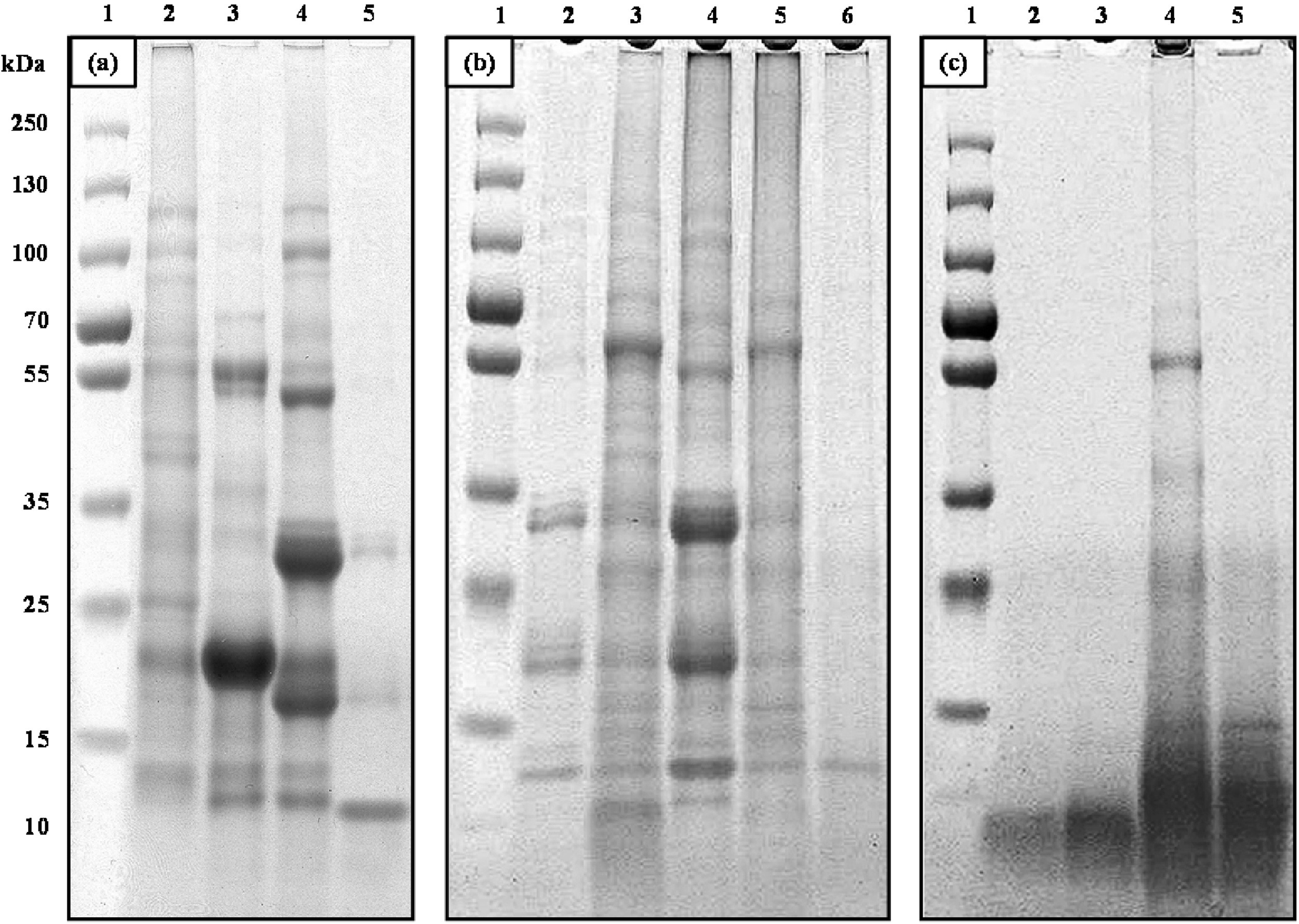Protein Profile Analysis Service
- Disease Biomarker Discovery: Quantitative analysis of protein differences in healthy and diseased samples to identify potential diagnostic and therapeutic targets, such as cancer- or neurodegenerative disease-associated proteins.
- Drug Mechanism of Action Research: Evaluation of protein and pathway changes after drug intervention to elucidate drug targets and off-target effects.
- Cellular Signal Transduction Studies: Modification site analysis reveals regulatory mechanisms of key proteins in signaling pathways, such as phosphorylation cascade events.
- Metabolic Regulation and Environmental Adaptation Research: Analysis of dynamic changes in cellular proteomes under specific conditions, supporting studies on biosynthetic pathway optimization or stress response mechanisms.
- Basic Research and Evolutionary Biology: Proteomic analysis across species, tissues, or developmental stages to reveal functions and evolutionary patterns.
Protein profile analysis service refers to the comprehensive analysis of the types, quantities, and states of proteins in biological samples through efficient separation and detection techniques. In life sciences research, proteins are the core molecules involved in studying cellular metabolism, signaling pathways, disease mechanisms, and therapeutic strategies. High-efficiency and precise protein profiling can unveil the proteomic characteristics of samples, providing critical scientific insights for biomedical research, drug development, and industrial applications.
Service at MtoZ Biolabs
With state-of-the-art mass spectrometry platforms such as Thermo Fisher Orbitrap Fusion Lumos and Q Exactive HF, MtoZ Biolabs offers precise and efficient protein profile analysis service. Our platform, combined with the Nano-LC nanoscale liquid chromatography system, establishes an end-to-end workflow from sample preparation to data analysis. Whether uncovering dynamic changes of proteins in biological systems or identifying potential diagnostic or therapeutic targets, our service delivers high-quality data to help clients achieve research breakthroughs.
1. Protein Expression Profiling: Comprehensive analysis of protein expression levels and their dynamic changes under various biological conditions.
2. Differential Protein Screening: Identification of differentially expressed proteins between experimental groups.
3. Post-Translational Modification (PTM) Analysis: Accurate detection of modifications such as phosphorylation, acetylation, and glycosylation, providing in-depth support for functional studies.
4. Quantitative Proteomics Analysis: Using labeled or label-free methods to provide absolute or relative quantification.

Luca. Amagliani, et al, J Food Compost Anal, 2017.
Figure1. The Electrophoretic Profiles of the Four Rice Protein Fractions
Core Analytical Techniques
1. SDS-Polyacrylamide Gel Electrophoresis (SDS-PAGE):
Separates protein samples and provides preliminary molecular weight information, suitable for rough protein profile analysis.
2.Two-Dimensional Gel Electrophoresis (2D-Gel Electrophoresis):
Separates complex samples based on isoelectric point and molecular weight, ideal for comprehensive analysis of protein expression levels.
3.Liquid Chromatography-Mass Spectrometry (LC-MS):
Combines efficient separation with mass spectrometry to accurately determine protein molecular weight, sequence, and post-translational modifications (PTMs).
4.High-Resolution Mass Spectrometry:
Powered by Thermo Fisher Orbitrap and FTICR MS platforms, offers ultra-high sensitivity detection capabilities, particularly suitable for identifying low-abundance proteins.
Analysis Workflow
The technical workflow of protein profile analysis service has been rigorously optimized to ensure scientific validity and reliability of the results. The process includes:
1.Sample Preparation
Utilizing strictly controlled lysis and enzymatic digestion protocols to ensure efficiency and integrity of protein extraction and digestion. Specialized buffers and additives are used for challenging samples such as membrane proteins.
2.Separation and Enrichment
Peptides are efficiently separated using SDS-PAGE, 2D-Gel and Nano-LC nanoscale liquid chromatography, while modified peptides are enriched with specific antibodies or chemical reagents (e.g., phosphorylation and glycosylation enrichment).
3.Mass Spectrometry Detection
High-resolution and high-precision mass spectrometry data are acquired using Orbitrap Fusion Lumos through secondary fragmentation scanning of separated peptides.
4.Data Analysis
Professional software such as MaxQuant and Proteome Discoverer is used for database matching and quantitative analysis, ensuring comprehensive and accurate protein identification and providing detailed interpretations of specific modification sites.
Each step is tailored to the sample type and research goals, guaranteeing the delivery of high-quality proteomic data to clients.
Service Advantages
1. High Sensitivity and Broad Coverage: With the high-resolution and deep detection capability of Orbitrap Fusion Lumos, low-abundance proteins down to fmol levels can be identified, enabling comprehensive analysis of complex samples.
2. Overcoming Challenges in PTM Detection: Targeted enrichment techniques precisely locate modification sites such as phosphorylation and acetylation, facilitating insights into signal transduction mechanisms.
3. Membrane Protein and Difficult Protein Analysis: Optimized buffer systems and specialized mass spectrometry conditions effectively address the challenges of low efficiency in membrane protein detection.
4. Advanced Data Analysis: Comprehensive bioinformatics support, from protein identification to functional network analysis, provides scientific insights for research.
Applications
Protein profile analysis service is widely applicable across the following research areas, providing tailored solutions:
MtoZ Biolabs is dedicated to delivering high-quality protein profile analysis service with advanced technology and tailored solutions, empowering your scientific breakthroughs. For more details, feel free to reach out to MtoZ Biolabs' professional team.
MtoZ Biolabs, an integrated chromatography and mass spectrometry (MS) services provider.
Related Services
Glycan Profile Analysis Service
How to order?







